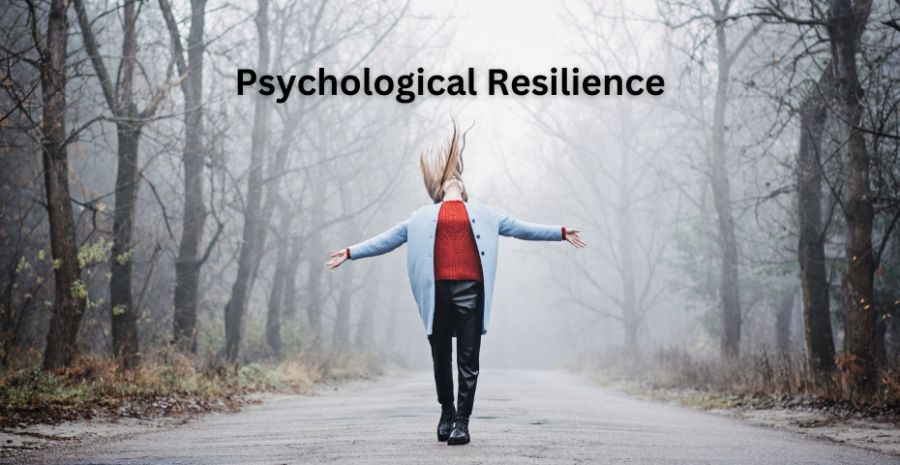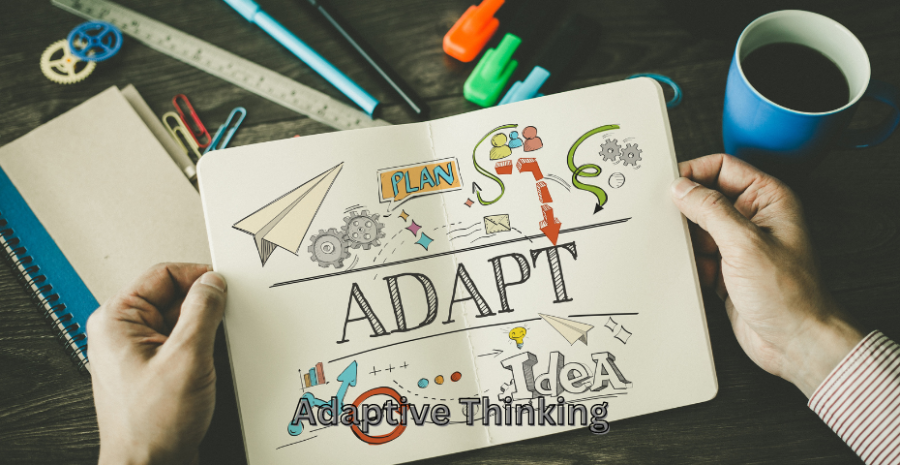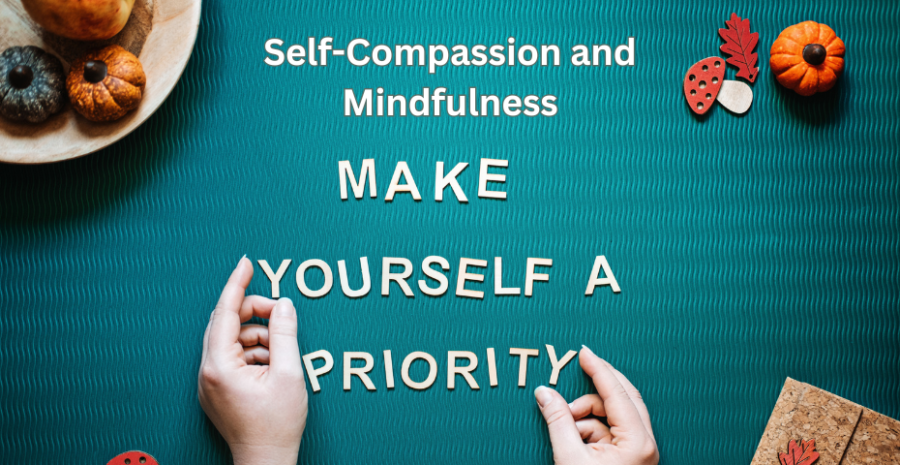

Resilience is an often-overlooked quality that lies at the core of human strength, enabling us to overcome challenges and emerge stronger from adversity. Many of us underestimate our own capacity for resilience, not realizing the profound inner resources we possess.
This exploration into discovering our inner strength aims to shed light on how we are more resilient than we may believe. By examining the biological, psychological, social, and cultural factors that contribute to our resilience, we can better understand and harness our inherent abilities.
Through this journey, we will uncover practical strategies to tap into our inner reserves and navigate life’s obstacles with greater confidence and resilience. Embracing this understanding allows us to recognize and cultivate the remarkable strength that resides within each of us.
Here are ten points to help you discover your inner strength and understand how we are more resilient than we know.
.png)
Biological resilience is the body's innate ability to withstand and recover from various physical stresses and traumas. Our immune system plays a crucial role in this process by identifying and neutralizing harmful pathogens, thereby preventing infections and illnesses.
The brain's neuroplasticity allows it to adapt and reorganize itself in response to new experiences, learning, and injuries, ensuring cognitive and emotional stability. Hormonal regulation, including the release of endorphins and cortisol, helps manage stress and maintain homeostasis during challenging times.
These biological mechanisms work in harmony to ensure that our bodies can effectively respond to and recover from adversity, highlighting the incredible resilience inherent in our physical being.

Mental resilience is crucial in facing life's challenges. Traits such as optimism, self-efficacy, and emotional regulation play significant roles in how we handle stress. Techniques like mindfulness, meditation, and cognitive-behavioral strategies can enhance our psychological resilience, enabling us to maintain mental health even in difficult times.
Psychological resilience refers to the mental fortitude that enables individuals to navigate and recover from life's challenges and stresses. It involves traits such as optimism, which fosters a positive outlook even in difficult circumstances, and self-efficacy, which is the belief in one's ability to manage and overcome obstacles.
Emotional regulation, another key component, allows individuals to maintain emotional stability and composure in the face of adversity. Psychological resilience is also bolstered by cognitive-behavioral strategies that help reframe negative thoughts and promote adaptive behaviors.
Together, these elements create a robust mental framework that empowers individuals to face challenges with confidence and adaptability.

Humans are inherently social beings, and our connections with others provide crucial support during tough times. Family, friends, and community offer emotional support, practical assistance, and a sense of belonging. Strong social networks can buffer the effects of stress and provide the encouragement needed to overcome obstacles.
Social support networks play a vital role in enhancing resilience by providing emotional, informational, and practical assistance during times of need. Family, friends, and community members offer comfort and reassurance, helping to alleviate stress and foster a sense of belonging.
These connections not only provide direct support but also encourage healthier coping mechanisms by promoting social interactions and shared experiences. Engaging with supportive networks can improve mental health, reduce feelings of isolation, and increase overall well-being.
The strength and quality of these relationships are crucial, as they offer a reliable foundation upon which individuals can rely during challenging periods.

Each challenge we face teaches us valuable lessons. Past experiences with adversity can build resilience by showing us how to cope with future difficulties. By reflecting on past challenges and how we overcame them, we can develop a toolkit of strategies to use in future situations.
Learning from adversity involves recognizing challenges as opportunities for personal growth and development. Each difficult experience teaches valuable lessons about resilience, problem-solving, and adaptability. By reflecting on past setbacks and how we overcame them, we can build a repertoire of strategies and coping mechanisms for future challenges.
This process fosters a growth mindset, where obstacles are seen not as insurmountable barriers but as chances to strengthen our skills and resilience. Ultimately, embracing and learning from adversity transforms it into a powerful tool for personal and emotional development, enhancing our capacity to navigate future difficulties.

Resilient individuals often possess the ability to think flexibly and adapt to new circumstances. This adaptability allows them to find alternative solutions to problems and to view challenges from different perspectives. Embracing change and being open to new ideas can significantly enhance our resilience.
Adaptive thinking is the ability to adjust one's mindset and strategies in response to changing circumstances and new information. This cognitive flexibility allows individuals to view challenges from different perspectives and devise innovative solutions.
By embracing change and uncertainty, adaptive thinkers can navigate complex situations more effectively and remain resilient in the face of adversity. This skill involves being open to new experiences, learning from mistakes, and continuously seeking improvement.
Cultivating adaptive thinking enhances problem-solving abilities and fosters a proactive approach to overcoming obstacles, ultimately contributing to greater personal and professional success.

Cultural norms and spiritual beliefs provide a framework for understanding and coping with adversity. They offer comfort, a sense of purpose, and community support. Engaging in cultural or spiritual practices can bolster our resilience by providing a deeper sense of meaning and connection.
Cultural and spiritual beliefs provide a profound source of strength and resilience, offering frameworks for understanding and coping with life's challenges. These beliefs often encompass rituals, traditions, and narratives that give individuals a sense of purpose and connection to something greater than themselves.
Engaging in cultural practices and spiritual activities can foster a strong sense of community, support, and belonging, which are crucial for emotional well-being. Moreover, these beliefs can provide comfort and hope during difficult times, guiding individuals through adversity with a sense of faith and resilience.
Cultural and spiritual beliefs enrich our lives by offering a foundation of meaning and support that bolsters our inner strength and capacity to endure hardships.

Maintaining physical health through regular exercise, a balanced diet, and adequate sleep is essential for resilience. These practices enhance our energy levels, improve mood, and boost overall well-being, making it easier to handle stress and recover from setbacks.
Personal health practices are essential for building and maintaining resilience, as they directly impact our physical and mental well-being. Regular exercise boosts energy levels, reduces stress, and improves mood by releasing endorphins. A balanced diet provides the necessary nutrients for optimal body and brain function, enhancing our ability to cope with stress.
Adequate sleep is crucial for cognitive function, emotional regulation, and overall health, helping us stay resilient in the face of daily challenges. Incorporating stress management techniques such as mindfulness, meditation, and deep-breathing exercises can further enhance our ability to handle adversity.
Together, these practices form a solid foundation for resilience, empowering us to navigate life's ups and downs with strength and vitality.

Setting realistic goals and developing a plan to achieve them can enhance our resilience. Having clear objectives gives us a sense of direction and purpose, and breaking down large tasks into smaller, manageable steps makes it easier to stay motivated and overcome obstacles.
Goal setting and planning are powerful tools for enhancing resilience, as they provide direction and purpose amidst challenges. By establishing clear, achievable objectives, individuals can break down complex tasks into manageable steps, making it easier to stay focused and motivated.
A well-thought-out plan helps prioritize actions, track progress, and adjust strategies as needed, fostering a proactive approach to overcoming obstacles. Setting both short-term and long-term goals creates a sense of accomplishment and builds confidence as milestones are reached.
This structured approach not only aids in navigating difficulties but also reinforces a sense of control and self-efficacy, contributing to greater overall resilience.

Viewing failure as a learning opportunity rather than a setback is crucial for resilience. Embracing a growth mindset, where challenges and mistakes are seen as chances to grow and improve, can help us bounce back from failures more quickly and with greater strength.
Developing positive relationships with failure is crucial for fostering resilience and growth. Viewing failure as a valuable learning opportunity rather than a setback allows individuals to approach challenges with a constructive mindset.
Embracing mistakes as part of the learning process encourages experimentation and innovation, ultimately leading to personal and professional development. By analyzing and reflecting on failures, individuals can identify areas for improvement and refine their strategies.
This mindset shift transforms failures from sources of discouragement into stepping stones for success, reinforcing resilience and persistence in the face of future challenges.

Practicing self-compassion involves treating ourselves with the same kindness and understanding that we would offer a friend. Mindfulness, the practice of staying present and fully engaging with the current moment, can reduce stress and enhance our ability to cope with challenges.
Self-compassion and mindfulness are integral to cultivating resilience and emotional well-being. Self-compassion involves treating oneself with kindness and understanding during times of difficulty, much like one would offer support to a friend.
This approach helps mitigate self-criticism and promotes a nurturing attitude towards oneself. Mindfulness, the practice of being fully present and engaged in the current moment, reduces stress and enhances emotional regulation.
Together, self-compassion and mindfulness foster a balanced perspective, allowing individuals to approach challenges with greater calm and clarity. By integrating these practices into daily life, individuals can build a resilient mindset that supports emotional stability and personal growth.
Together, these practices foster a resilient mindset by promoting emotional balance and inner peace.
Resilience is a multifaceted trait that encompasses our biological, psychological, social, and spiritual capacities. By recognizing and cultivating these aspects of resilience, we can discover the inner strength that lies within us. Understanding that we are more resilient than we know empowers us to face life's challenges with confidence and grace, emerging stronger and more capable with each experience.
In discovering our inner strength, it becomes clear that we possess a remarkable capacity for resilience that often goes unrecognized. By understanding the biological mechanisms that support our recovery, the psychological traits that bolster our mental fortitude, and the social and cultural frameworks that provide support, we uncover the layers of resilience embedded within us.
Learning from adversity, adapting our thinking, and embracing personal health practices further enhance our ability to navigate life's challenges. Cultivating positive relationships with failure and practicing self-compassion and mindfulness solidify our inner strength, enabling us to face difficulties with greater confidence and grace.
Embracing these aspects of resilience not only empowers us to overcome obstacles but also enriches our journey through life, revealing the extraordinary strength we possess within ourselves.
.jpg)
About: Andries vanTonder (65)
Over 45 years selfemployed
He is a Serial Entrepreneur, an Enthusiastic supporter of Blockchain Technology and a Cryptocurrency Investor
Find me: Markethive Profile Page | My Twitter Account | My Instagram Acount | and my Facebook Profile.
